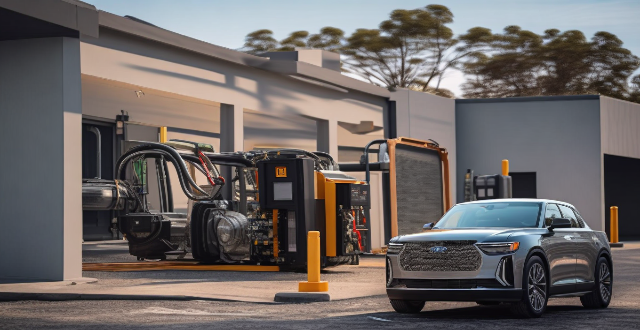Regular car tune-ups are crucial for maintaining performance and longevity, but can they also lead to better gas mileage? The answer is yes, as a well-maintained engine runs more efficiently, burning less fuel. Other factors that impact fuel efficiency during a tune-up include tire pressure, air filters, fuel systems, and ignition systems. To maximize gas mileage through regular tune-ups, it's important to stick to the maintenance schedule, use high-quality parts and fluids, drive efficiently, keep the car light, and monitor gas mileage over time.

Can Regular Car Tune-ups Lead to Better Gas Mileage?
Regular car tune-ups are essential for maintaining the performance and longevity of your vehicle. However, many drivers wonder if these routine maintenance tasks can also lead to improved gas mileage. In this article, we will explore the relationship between regular car tune-ups and fuel efficiency.
The Importance of Regular Car Tune-ups
Before diving into the connection between tune-ups and gas mileage, it's crucial to understand the significance of regular car maintenance. Here are some key reasons why tune-ups are important:
- Prevent Major Breakdowns: Regular tune-ups can help identify potential issues before they become major problems, saving you time and money on costly repairs.
- Extend Vehicle Lifespan: Proper maintenance ensures that all components of your car are functioning correctly, which can extend its lifespan.
- Improve Performance: Tune-ups keep your engine running smoothly, providing better acceleration and overall driving experience.
- Comply with Emission Standards: Regular maintenance helps ensure that your vehicle is not emitting harmful pollutants at levels above legal limits.
How Tune-ups Affect Gas Mileage
Now, let's address the main question: Can regular car tune-ups lead to better gas mileage? The answer is yes, but it depends on several factors. Here's how tune-ups can impact your fuel efficiency:
- Engine Performance: A well-maintained engine runs more efficiently, burning less fuel to produce the same power output. This means you'll get more miles per gallon (mpg) from each tank of gas.
- Tire Pressure: During a tune-up, technicians often check tire pressure and adjust it as needed. Properly inflated tires reduce rolling resistance, leading to improved gas mileage.
- Air Filter: A clean air filter allows your engine to "breathe" easier, improving combustion efficiency and reducing fuel consumption.
- Fuel System: Technicians may clean or replace fuel injectors during a tune-up, ensuring that your engine receives the right amount of fuel for optimal performance and efficiency.
- Ignition System: Spark plugs and wires may be replaced or cleaned during a tune-up, ensuring proper ignition timing and reducing the likelihood of misfires that waste fuel.
Tips for Maximizing Gas Mileage through Regular Tune-ups
To make the most of your regular car tune-ups and achieve better gas mileage, consider the following tips:
- Stick to the Maintenance Schedule: Follow your vehicle manufacturer's recommended maintenance schedule to ensure timely tune-ups.
- Use High-Quality Parts and Fluids: When replacing parts or fluids during a tune-up, opt for high-quality options that meet or exceed your vehicle manufacturer's specifications.
- Drive Efficiently: Even with regular tune-ups, how you drive can significantly impact your gas mileage. Practice smooth acceleration and deceleration, avoid idling, and maintain steady speeds whenever possible.
- Keep Your Car Light: Remove unnecessary weight from your vehicle to reduce its load and improve fuel efficiency.
- Monitor Your Gas Mileage: Keep track of your mpg over time to identify any changes or trends that may indicate a need for additional maintenance or repairs.
In conclusion, regular car tune-ups can indeed lead to better gas mileage by ensuring optimal engine performance, maintaining proper tire pressure, and keeping critical components such as air filters and fuel systems functioning correctly. By following a regular maintenance schedule and practicing efficient driving habits, you can maximize your fuel efficiency and save money at the pump.